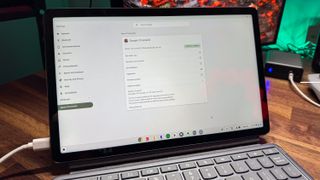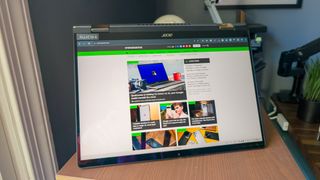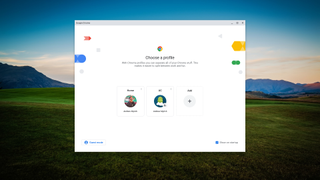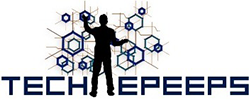Past the Alphabet
Past the Alphabet is a weekly column that focuses on the tech world each in and out of the confines of Mountain View.
We’re long-removed from the times when Chromebooks had been mainly nothing extra than simply Chrome on a laptop computer. Whereas there are nonetheless some limitations when in comparison with Home windows or macOS, Google’s ChromeOS improvement continues to be reasonably spectacular. Nonetheless, Google is gearing as much as convey concerning the greatest change to the platform since its inception.
For the previous few years, we have heard and seen mentions of “Lacros,” which stands for “Linux And ChRome OS.” Primarily, it is simply the identical Chrome browser that you’d use on every other desktop OS. In that vein, Google is engaged on de-coupling Chrome, the browser, from ChromeOS, the working system.
This doesn’t suggest that you’ll not have Chrome in your Chromebook; as a substitute, it can remedy just a few of the platform’s issues, the largest of which is the lack to obtain browser updates after your Chromebook has reached its AUE date. It is not necessary from the standpoint of getting new options, however it is necessary relating to receiving safety patches that would compromise your accounts.
Decoupling Chrome would help you obtain and set up updates for the browser for, hopefully, years to return. Doing so would tremendously scale back the stigma round Chromebooks turning into e-waste after the AUE date is met.
Google has been engaged on alternative ways to scale back the e-waste launched by Chromebooks. The latest change got here in September 2023, when Google introduced Chromebooks which were launched since 2019 would obtain updates for ten years. It is a particular enchancment over the earlier eight-year dedication, however Google is not carried out simply but.
Advantages of Lacros

If carried out proper, you most likely will not discover a distinction between the Chromebook you are presently utilizing and one of the best Chromebooks after this replace is launched. That is sort of the purpose of all of it and explains why this modification has taken so lengthy to implement. Nonetheless, there are a few different advantages to having Lacros in comparison with the ChromeOS that we’ve got in the present day.
For one, you may not want to modify between person accounts simply because you may have a number of profiles. The identical profile switcher that’s presently obtainable in Chrome on Home windows, macOS, and Linux will now be obtainable in your Chromebook.
Talking from expertise, that is arguably the largest purpose why I jumped on the probability to allow Lacros as quickly as I may. I needn’t take care of logging out of 1 account and into one other when the Chrome browser already has profile switching. With so many different quality-of-life enhancements coming to ChromeOS, this is only one extra that provides one other feather within the cap for the platform.
This leads us to a different purpose why Lacros on ChromeOS is a giant deal: we must always get a constant expertise throughout the board. So, every other options that you just get pleasure from when utilizing Chrome on different desktop platforms are more likely to make their solution to Chromebooks.
The Chrome expertise on ChromeOS will not make you are feeling like a second-class citizen in comparison with Home windows or macOS.
It looks as if this might be a foregone conclusion, however due to how tightly built-in Chrome is to ChromeOS, it simply hasn’t been doable for one purpose or one other. Fortunately, Lacros will possible “remedy” this drawback and hopefully keep away from every other potential annoyances.
Circling again to updates, whereas it is necessary to scale back the quantity of e-waste, there’s one more reason why this eventual cut up is significant. At the moment, each Chrome and ChromeOS obtain an replace on a four-week cadence. Nonetheless, there are occasions when an replace for ChromeOS is delayed for one purpose or one other, often associated to a bug that must be fastened.
The issue right here is that if there is a crucial safety patch that must be rolled out, Google cannot achieve this with out updating your entire working system. Whereas, in case you’re utilizing Chrome on Home windows, you may possible see a “Relaunch to Replace” immediate seem within the prime proper nook of the browser window. With Lacros, Google can push an replace to the browser, separate from the OS, and implement any essential adjustments instantly.
Is there a catch?

By now, you are most likely ready for me to speak about “the catch,” whether or not it is a characteristic that may not be current or damaged performance in ChromeOS. Hopefully, since Google has been engaged on this for thus lengthy, there will not be a “catch” to fret about.
If all goes in keeping with play, you may replace your Chromebook someday and you will not even discover a distinction. Except, in fact, you are like us and browse via any changelogs which can be made obtainable when updates arrive.
Because it presently stands, you may strive making the change by yourself Chromebook, supplied that you just’re okay with enabling the #lacros-only flag. After a restart, the one distinction you may see is that the Chrome icon is modified to the identical one because the Chrome Canary icon. Apart from that, you may simply proceed utilizing Chrome the identical manner you all the time have.

It is price declaring that when this does make its solution to the secure construct of ChromeOS, those that like tinkering with flags will discover a change. At the moment, if you wish to allow any flags to strive new options, you are able to do so by navigating to “chrome://flags.” With Lacros enabled, that shortcut remains to be obtainable however solely applies to the browser. So, if you wish to fiddle with any system-level flags, you may navigate to “os://flags.”
I want I had been in a position to sit right here and inform you when the change was set to be applied, however sadly, we simply do not know but. Robby at Chrome Unboxed discovered that Lacros was the default browser on ChromeOS Canary Model 124, however I am utilizing Model 125, and it is again to “regular.”
Whereas it is extremely unlikely to return within the subsequent secure launch, we predict Google to make the largest change to ChromeOS sooner or later within the very close to future. However when it does come, you could not even know.




















/cdn.vox-cdn.com/uploads/chorus_asset/file/25547838/YAKZA_3840_2160_A_Elogo.jpg?w=120&resize=120,86&ssl=1)